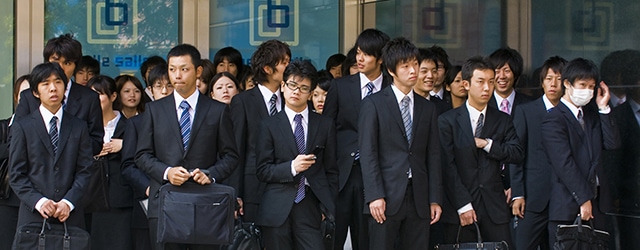Falling population fuels rising wages.

Could wages finally be catching up with economic growth in at least one industrialized country? Wages in Japan rose at the fastest pace in 21 years in June.
According to the Ministry of Health, Labor and Welfare, inflation-adjusted wages in Japan climbed 2.8% in June, marking the most significant year-on-year increase since a 6.2% rise in January 1997. Coming partially in the form of summer bonuses, the higher wages contributed to a 1.9% annualized increase in GDP in the second quarter.
Rising wages may reflect demographic shifts, another portent for industrialized countries. The bump comes eight years after Japan’s population peaked at 128 million. The decline in population in the years since has put pressure on the labor market, with unemployment falling from a peak of 5.5% in late 2009 to 2.4% this June. The ratio of active job openings to applicants more than doubled, from 0.80 in 2012 to 1.62 currently.
Yet despite the tighter conditions and record earnings in fiscal 2017, employers had remained reluctant to increase wages. “The recent increases suggest that market forces have finally kicked in,” says Steven Vogel, Asian studies and political science professor at the University of California, Berkeley. “The Japanese government and industry are less concerned about how to shed workers and reduce labor costs, and more concerned about how to increase workforce participation and raise productivity.”
Toward those ends, companies are not only increasing wages but also improving working conditions by offering reduced work hours, more-generous leave policies and remote working options, as well as promoting more temp workers to permanent status. These changes have further contributed to the country’s ultralow unemployment rate and pulled more women and older citizens into the workforce. Participation levels for women and for workers over 65 are at record highs.
Better working conditions also promote productivity—an area in which Japan has lagged other developed economies—while higher wages and more leisure time contribute to domestic consumption. “Higher wages and greater job security should drive higher consumption and help the overall macroeconomy substantially,” says Vogel.



